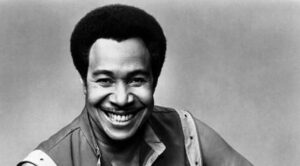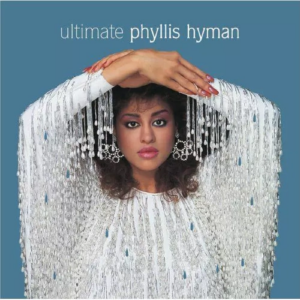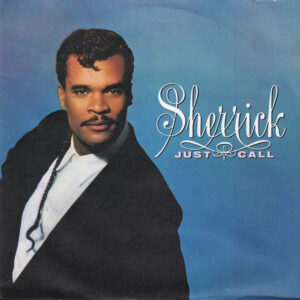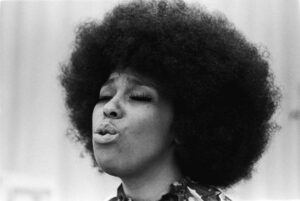Gregory Porter – or more accurately the nattily dressed baritone’s legion of fans – will soon receive a lesson in the advantages of major label affiliation.
Porter released his two critically acclaimed albums – the 2010 Water and the 2012 Be Good – on the Motema record label. Motema is known as the Blue Note Records of the 21st Century, and the label was very good for Porter. The suits at Motema didn’t try to change Porter’s style. I can’t think of too many majors that would have allowed an up and comer such as Porter to make “1960 What?,” a song which not only tells the story of that decade’s urban unrest from the point of view of the people and not the politicians, but is also an eerie premonition of incidents of recent vintage. Then there is the whimsical waltz, “Be Good.” How would a major react to that?
Fans loved Porter’s first two albums, but Motema ran up against the limitations of being a small label and limited potential label support likely prevented Water and Be Good from receiving the commercial success that both projects richly deserved.
Porter moves to Blue Note for his third effort, the very good Liquid Spirit. Blue Note is a subsidiary of the Universal Music Group, so resources shouldn’t be a problem. So expect to see Porter making the talk show rounds and NPR sometime after Liquid Spirit’s mid September release date. This means that the world will hear and see what Porter’s fans have been raving about.
Now that Porter has released a trio of albums (in addition to his contributions to the Zbonics project), his fans will rank their favorites. While all of Porter’s projects have much to offer, the lack of a signature song on Liquid Spirit may make many rank it third. Liquid Spirit certainly has a different feel than its predecessors. Water is the most jazz orientated of the three – although all of the albums contain ample amounts of improvisation. Be Good finds Porter making a deeper exploration of his soul roots. Liquid Spirit is the most pop oriented of the three, and contains a larger number of the classic three-minute pop than its predecessors.
The main similarities that Liquid Spirit shares with the other two records are its strong, vivid lyricism and topical diversity – in addition to Porter’s lovely voice. The title track employs the use of metaphor to explain how Porter views his music as quenching the public’s thirst. “Liquid Spirit” is one of Porter’s most gospel oriented songs with its syncopated handclaps and thumping acoustic bass that recalls some of Charles Mingus’ music.
The bluesy “Brown Grass” flips that old saying about the grass being greener on the other side 180 degrees. The track is one of several where Bill Withers’ influence can be heard. Porter tells a story of a man who strays only to find that the reality did not match the perception. “Brown grass/on the other side/nothing but brown grass/now I’m open wide to the truth I left behind/a love so hard to find/now I find myself falling down on brown grass/now I find myself rolling round on brown grass.”
Porter also paints word pictures on the record’s opening track, “No Love Dying.” The song brings in superstitions that are harbingers of death as Porter finds other explanations and rejects the fear that things like birds flying into closed windows or broken mirrors. “There will be no love that’s dying here/the bird that flew in through my window/simply lost its way/he broke his wing/I helped him heal and then he flew away/well the death of love is everywhere/but I won’t let it be/there will be no love that’s dying here for me.”
Porter included covers on his previous projects, and he does so on Liquid Spirit with a funky version of “The In Crowd” and a by-the-book cover of “I Fall In Love Too Easily.” The other 12 tracks are original, leaving the field open for Porter to display his creativity. And with his strong sense of melody and his unique lyrical view, Gregory Porter certainly displays plenty of creativity. Those characteristics, combined with that voice, make Liquid Spirit another great addition to the Gregory Porter musical trilogy. Strongly Recommended.
By Howard Dukes









